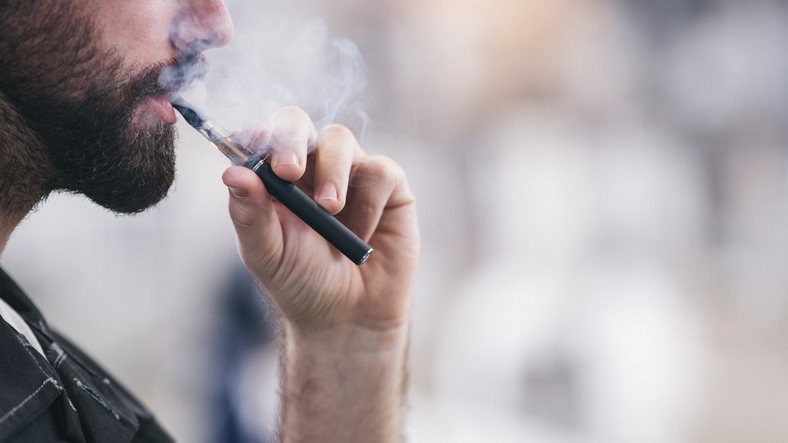Upstart vape makers ‘vying’ for NHS licence while big tobacco companies wait-and-watch
December 2, 2021

Upstart vape makers are “vying to get their products prescribed on the NHS” while big tobacco companies seems to be in wait-and-watch mode for now, stated a recent report as the UK is set to become the first country in the world to prescribe e-cigarettes after the green signal by Medicines and Healthcare products Regulatory Agency (MHRA) last month.
MHRA published updated guidance last month paving the way for medicinally licensed e-cigarette products to be prescribed for tobacco smokers who want to stop smoking and switch to vaping instead. Under the new guidance, manufacturers can now approach the MHRA and submit their products to the same regulatory approvals process as other medicines available on the NHS.
If an e-cigarette gets MHRA approval, doctors could then decide on a case-by-case basis whether it would be appropriate to prescribe an e-cigarette to a patient to help them quit smoking.
The e-cigarette market is worth more than £2bn in the UK, according to Euromonitor, far higher than other European countries.
Several vape makers, including US-based NJOY, DSL Group, Yatzz and Leeds-based Superdragon, are pursuing the NHS licence, as per a report by Financial Times.
NJOY, which has 3.9 per cent of the $5bn US market, according to Nielsen data, is “far on in the development of its application”, the report claimed citing a person close to the company.
DSL Group, which owns Nottingham-based Multivape, is also pursuing the licence, as is Irish company Yatzz and Leeds-based Superdragon, whose director David Xiu described the potential market as “much more than a multimillion-pound” opportunity, said the report.
However, the report adds that none of five largest e-cigarette brands in the UK have yet launched an application for the medicinal use. While Imperial Brands, the UK owner of Blu e-cigarettes, said it was “carefully studying the new guidance”, Japan Tobacco International said it had “not made any decisions regarding licences” for its Logic brand of vapes.
Licensing for the NHS reportedly may take several years, during which time products can become out of date, due to which some “companies may prefer commercial routes”, the report quoted Erik Bloomquist- a tobacco sector analyst. Compliance costs may also prove to be prohibitive for smaller groups.
